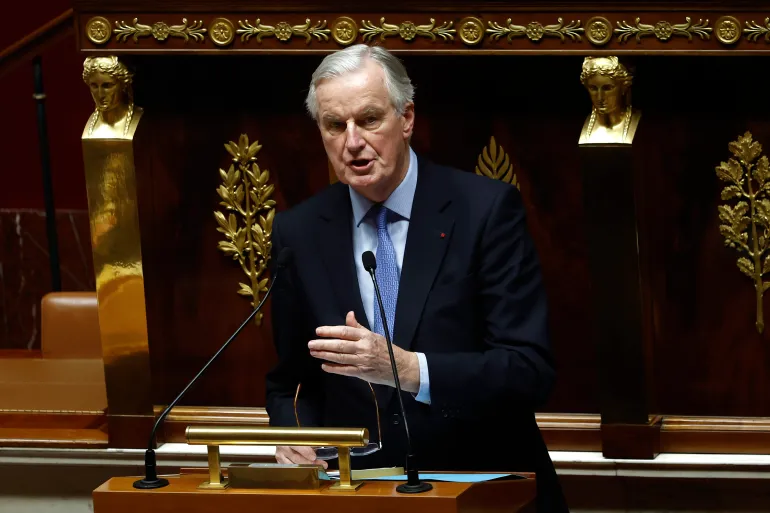French President Emmanuel Macron is set to address the nation following the resignation of Prime Minister Michel Barnier, a day after a no-confidence vote in parliament toppled the government.
Barnier submitted his resignation in a meeting with Macron at the Elysee Palace on Thursday. Macron “took note” of the resignation and asked Barnier and his government to continue in a caretaker capacity “until the appointment of a new government”, the Elysee said in a statement,
Macron was set to meet both the upper and lower house Parliament speakers before giving an address to the nation at 19:00 GMT.
A total of 331 lawmakers in France’s 577-seat National Assembly voted to remove the government in the no-confidence vote on Wednesday, forcing Barnier to step down after three months in office – the shortest tenure of any prime minister in modern French history.
Barnier’s removal has come after snap parliamentary elections in June resulted in a hung parliament with no political force able to form an overall majority and the far right holding the key to the government’s survival.

“I recommend that he proceed quickly to the appointment of a prime minister, it’s important, we must not leave things up in the air,” National Assembly President Yael Braun-Pivet told France Inter radio before meeting Macron around noon (11:00 GMT).
Francois Bayrou, whose name is often invoked by French media as a possible successor to Barnier, was due to have lunch with Macron, Le Parisien newspaper and other media reported. Bayrou is a veteran centrist politician and a close Macron ally.
Outgoing Defence Minister Sebastien Lecornu has also been noted as a possible candidate for prime minister. There was no word yet of a possible Macron meeting with him.
Parliament divided
The political instability in France further weakens the European Union, which is already dealing with the collapse of Germany’s coalition government. The uncertainty also comes just weeks before U.S. President-elect Donald Trump takes office.
Any new prime minister will face similar challenges that led to Barnier’s downfall, particularly the task of pushing through the 2025 budget in a deeply divided parliament, at a time when France’s public finances require urgent reform.
“This is the logical outcome of the current political situation in France: a complete mess,” said 75-year-old Parisian Paulo, speaking to Reuters. “What comes next is hard to predict. This National Assembly is entirely fragmented. There are no clear majorities—just various minority groups.”
Gallien, a political science lecturer at Sorbonne University, shared his thoughts with Al Jazeera: “The current state of the National Assembly makes the situation in France nearly impossible to navigate.”



